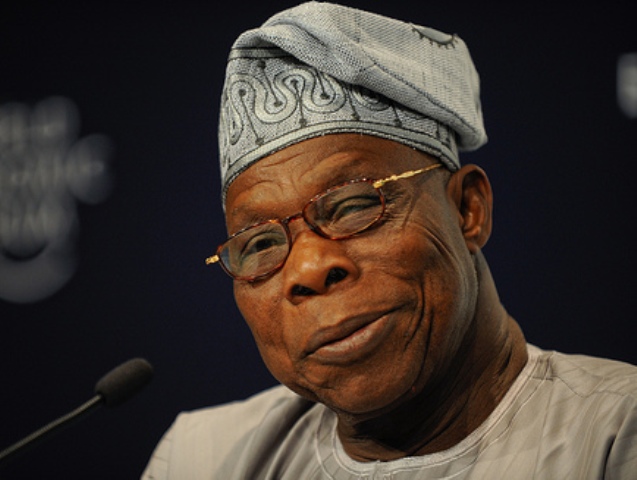 Andrew Robinson- CEO, Kit Group South Africa
Andrew Robinson- CEO, Kit Group South Africa
Without doubt, the manufacturing sector is evidently critical for economic growth and development. Even so, in spite of the abundance of human and natural resources in Africa, the sector seems not to have recorded a significant contribution to the economies of some African countries in terms of job creation and contribution to GDP. In this exclusive interview with Eruke Ojuederie of African Leadership Magazine, Andrew Robinson, the CEO of Kit Group, South Africa and a member of Young Presidents Organization (YPO) brings to light some of the successes recorded as a leading textile manufacturer in South Africa, the challenges in the sector and some solutions to the challenges. Excerpt:
Kit Group is a leading textile manufacturer in South Africa. Can you tell us some of the successes your company has recorded over the past 25years?
Over the past quarter century Kit Group has gone from a single deal-single client business run from founder Joe Ferreira’s home into South Africa’s top manufacturer and supplier of uniform and personal protective equipment (PPE) and a major player on our continent.
We operate in 5 countries – South Africa, Angola, Mozambique, Botswana and Namibia – and have over 40 factories in our network, creating employment for over 10,000 people. Our clients come from even further afield and our products can be found on workers in DRC, Zambia, Lesotho, Swaziland, Burundi, Uganda, Nigeria, Jordan and Kosovo.
We are already the largest clothing supplier to the South African security industry, which employs over 500,000 people, as well as being the largest corporate clothing business in Southern Africa, dressing employees in the financial services, airline, healthcare, hospitality and retail sectors. We are one of the dominant players in industrial workwear for miners and factory workers and service military and police forces across Africa.
Our largest customer employs 80,000 people and our smallest employs 10. And we cherish them all.
This is something we are very proud of but we believe that we can do even more and we are working hard every day to grow our business and rebuild this important industry.
How would you describe your company’s culture?
We are open, honest and hard working and we strive to serve our customers and our people with pride and integrity. That is our culture.
In order to live it we have to be people-focused, entrepreneurial, systems driven, pan African and innovative. Too many companies talk about culture but behave based on short-term operational requirements. I believe that you can tell more about a culture from what companies do than what they say. So watch us.
Textile manufacturing across the continent seems not to have recorded much success in terms of returns and contribution to the GDP of African economies. In what ways do you think this sector can be improved?
When Kit Group was founded there were 150,000 people employed in textiles manufacturing and today there are only 35,000 people. We want to reverse this trend. We are buying factories, investing in the best equipment, training people to replace those who have left the trade, and creating more jobs.
We are growing organically and through acquisition and are consolidating the market that we are leading. We have top designers and are developing ranges that make people feel great – and look good – when they’re at work.
We are investing heavily in building world class factories with great tech and top people so that we can take back some of the ground Africa lost to countries like China, India and Bangladesh in textiles. We have the work ethic, energy and ideas but we need support from the government in terms of logistics like roads, railways, power, internet and labour. We also need legislative and political stability so that we can take a long term view and raise the capital that is needed.
It is up to all of us to use the space created by currency weakness to take advantage of the opportunities to crack new markets. Opportunities are rare and must not be wasted.
Do you think entrepreneurship as viable tool for development has been fully explored? How has your company contributed to encouraging entrepreneurship among young people?
No. I think entrepreneurship on the continent has been woefully ignored. From Egypt to South Africa there is a lot of lip service paid to it, and while some progress is being made, a lot of bureaucrats are going on a lot of study tours but leaving many of the the things that matter most unchanged.
What we want is simple. Serviceable roads and railways, reliable power, cheap fast data, well educated workers, a stable and fair legislative environment and reasonable but not too onerous regulations and taxes. We want our contracts to be enforceable, the government to pay its bills on time and the wherewithal to import and export as required without having to jump through too many hoops.
The textile sector is ripe for entrepreneurs and I believe – and this has been proven in countries that have aggressively pursued opportunities in the sector – that it has great potential to absorb large numbers of people, drive exports, contribute significantly to taxes and create space for innovation and entrepreneurship. All have these have significant beneficial social impact.
For our part, we are doing a lot to develop entrepreneurship with a focus on helping women owned and run factories. We have a big drive on this as we believe this is where we can make the largest impact. For only R10,000 you can buy a sewing machine which automatically creates a job. This can be leveraged as long as the demand is there.
Leadership in Africa is said to be one of the continent’s weaknesses. How do you think things can be made better?
Leadership in Africa has been weak and self serving for many decades. The strong men that ruled with impunity have impoverished and degraded this beautiful continent. But I am bullish on Africa’s future and I believe that we are witnessing a turnaround that will leave us far better off than at any time in our history.
We are a long way off where we need to be but we are definitely making progress and while it is easy to focus on the negative stories that come out, it is as important to look at all the positive developments.
I do not think that change is due to the leadership having a magical change of heart, but rather to the fact that the citizenry has started demanding more and politicians are being forced to deliver according to their mandate rather than just their self interest. To continue this trend, gains made so far, such as the peaceful change of government in Nigeria, need to be entrenched and become the norm rather than the cause of “oh wow” moments. This takes all of us – politicians, business people, the media, civil society and citizens.
Ultimately, leaders need to be accountable and we must learn from history so that the mistakes of the past do not get repeated. Egos must be left at the door and exits planned with proper succession in place, national wealth must be deployed for the good of all rather than the wants of the few, and democracy must be strengthened every step of the way.
This is how the future gets won.
As an entrepreneur I have all my eggs in the African basket and this means that I make decisions based on what I believe is going to happen, both good and bad, rather than what I still see happening in the moment. I am confident that my decisions are the right ones both for my business and for me personally.
How do you ensure that you get the best quality materials available for safety and security kit?
There are no short cuts. Do your homework and pay attention to the details. Form lasting and mutually beneficial partnerships with your suppliers so that you remain a priority and get their best work. Have a world class procurement team who remains at the cutting edge of the industry.
But the best raw materials are no use unless you match it with the best manufacturing capacity and quality control. You also have to invest in new technologies, the best plant and testing equipment and the experts, managers and workers who can bring it all together.


